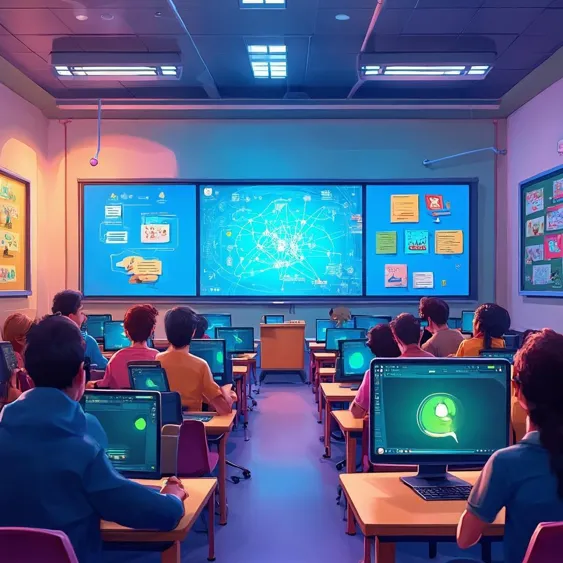AI's Impact on Education and Homework Standards

As artificial intelligence (AI) increasingly permeates educational systems, discussions around its ethical use and implications for learning are becoming critical. The recent report from a YouGov survey, commissioned by Cambridge University Press, revealing that one in six UK adults believe reducing homework could be a viable response to combat AI misuse, raises significant questions about the role of traditional education in the age of advanced technology.
This survey reflects a growing tension between educational values and the realities posed by AI. While 89% of respondents deemed AI usage by students unacceptable, nearly half accepted its use for improving grammar and punctuation. This highlights a nuance often overlooked in debates about technology in education. The suggestion to cut back on homework contrasts sharply with the views of educational leaders like OCR's CEO, Jill Duffy, who advocates for a national AI strategy instead of merely diminishing academic demands. The reality is that AI is not going away; it's transforming the skills we need and how we assess them.
Looking at broader educational trends, many universities are now grappling with similar dilemmas surrounding AI, as evidenced by reports that over 90% of undergraduates at UK institutions utilized AI to complete assignments. The argument is not just about whether AI should be used but how it can be integrated ethically and effectively into the learning process. Duffy's call for a coordinated national effort reflects a growing recognition that education systems must adapt to leverage the benefits of AI while addressing its challenges.
In conclusion, as we navigate the implications of AI in education, the takeaway is clear: Rather than retreating to less rigorous academic standards, we must embrace innovation within the education system. This poses an essential question: How can educational institutions evolve to foster an environment where AI is a beneficial tool rather than a crutch?
Read These Next

The Promising Future of Natural Food Colors
This article discusses the significant shift from artificial food colors to natural alternatives, emphasizing the role of innovation in the food industry driven by consumer health consciousness. It highlights the efforts of companies like Fermentalg and Sensient in developing vibrant natural dyes and the challenges they face in matching synthetic colors.

3I/ATLAS: Cosmic Intruder or Alien Probe?
The commentary examines the implications of the 3I / ATLAS interstellar object and its potential link to extraterrestrial intelligence, reflecting on how it fits into broader astronomical discourse.

Study uncovers microbial adaptation in plateau animals
Study shows altitude affects plateau pika gut microbiota, revealing adaptations for survival on the Qinghai-Xizang Plateau.
